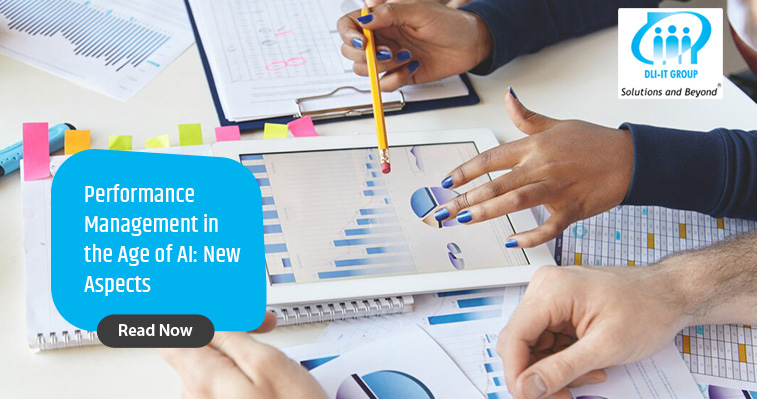Performance management continues to transform at an accelerated pace in modern business because of Artificial Intelligence (AI) advancements. The business world’s transition enables organizations to discover multiple paths for maximizing workforce performance and employee engagement and achieving better business outcomes. An examination will follow of how AI reshapes performance management systems alongside the fundamental elements that businesses must address in this modern age.
What is Performance Management?
-
Data-Driven Insights for Real-Time Performance Monitoring
The traditional practice of annual and quarterly performance reviews has become obsolete. Through AI technology companies get the ability to track performance data in real time. Through data analysis, AI systems deliver managers real-time information about both workforce metrics and worker interactions. Through data-driven insights, leaders gain the power to make instant decisions and address problems early while delivering customized feedback that fuels ongoing performance enhancement.
-
The application of artificial intelligence generates customized development plans for users
AI technology enables organizations to create employee development programs that remove standardization from their approach. The assessment of employee skills together with career aspirations and personal preferences develops personalized development plans. AI-driven programs use technology to match employees with appropriate learning materials training opportunities and career path recommendations that match their targets.
-
Bias Reduction in Performance Evaluations
Performance management systems that function traditionally face criticism because of built-in biases both conscious and unconscious. Objective employee performance data obtained from AI tools works to reduce biases that previously plagued evaluation processes. The use of AI-based algorithms that examine performance results against predefined metrics and patterns creates evaluations that are precise and fair while helping businesses maintain diversity and equality.
-
AI-Enhanced Employee Engagement
AI deployment establishes continuous feedback systems that integrate support infrastructure to optimize employee engagement. AI tools analyze employee sentiments by integrating survey feedback with chatbot data and social media monitoring which generates real-time workplace satisfaction reports for organizations. The data provides businesses with active methods to preserve employee drive while ensuring both employee dedication and organizational mission accomplishment.
-
Automating Routine Administrative Tasks
The implementation of AI systems in performance management delivers automatic processing as a major advantage. Through artificial intelligence, organizations can use automated systems to manage their performance evaluation workload which includes the process of scheduling assessment appointments while gathering feedback data and conducting report analysis. Organizations harnessing this automation for HR tasks and managerial responsibilities create a path for their personnel to excel at strategic initiatives and employee advancement instead of being lost in documentation.
-
Predictive Analytics for Future Performance
The advanced features of AI-based predictive analytics prediction technology enable organizations to use predictive capabilities that identify future performance issues. AI systems analyze historical data to forecast performance actions and identify important employees and necessary skill training needs. By implementing this approach in advance organizations can identify potential challenges and maintain an effective workforce that stays ahead of current and upcoming problems.
Conclusion
Organizations today use technology to maximize human capabilities within the context of performance management. Through AI-driven solutions, organizations achieve three key performance management improvements: efficiency, personalized approach, and data-focused strategy. The result of these improvements is motivated staff who make better decisions which generates better business results. The future of performance management shows progress because AI continues to develop new possibilities for organizational growth along with innovation and achievement. Contact DLI-IT Today!
